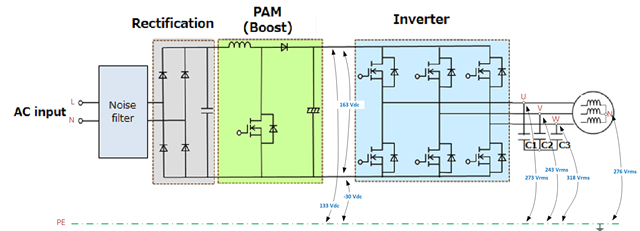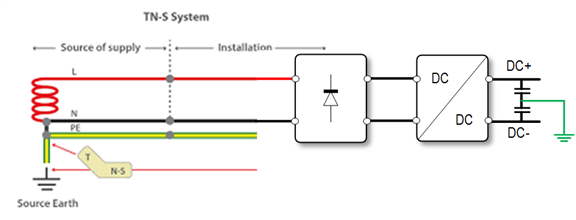I am trying to get the inverter running and for 163 Vdc in an open-loop, I am measuring line voltage (Vuv, Vvw and Vwu) 76 Vrms which is ok.
But when I measure Vu-earth I get 273 Vrms, Vv-earth = 243 Vrms and Vw-earth = 318 Vrms.
Even stranger is when I measure DC bus + to earth which is 133 Vdc is DC - to earth is -30 Vdc.
Voltage from the load neutral to earth is 276 Vrms.
Schematics and values are shown below:

Why am I measuring this?
I would expect to measure DC + and DC - to earth to be equal and phase voltages to be line/sqrt(3) and neutral to earth to be zero.
Kind regards.


